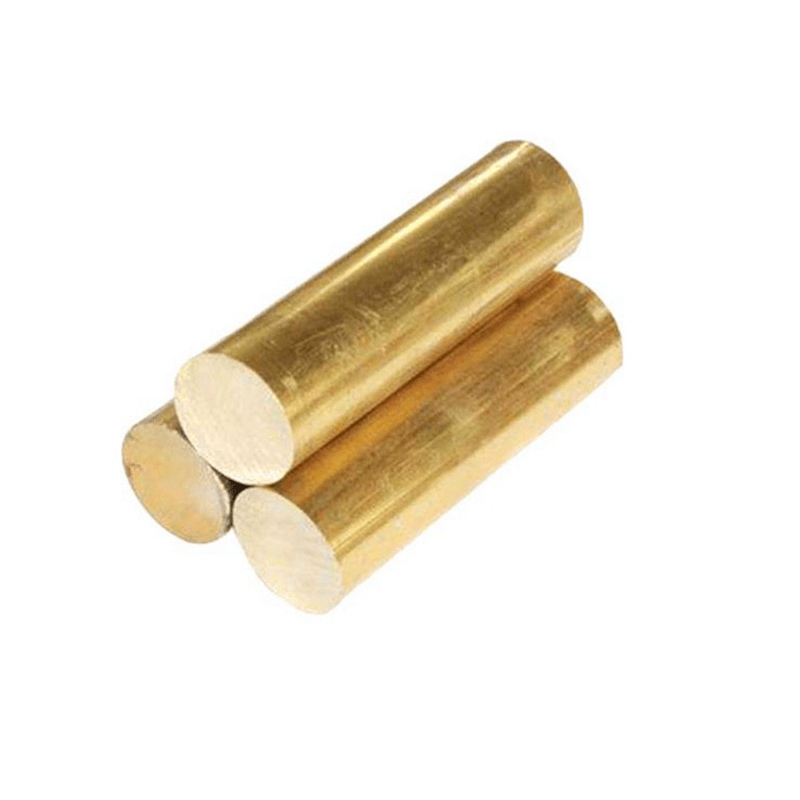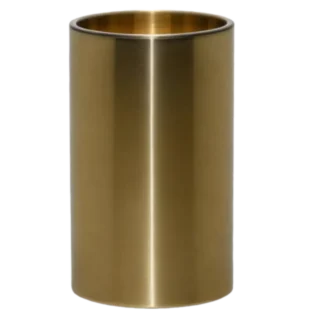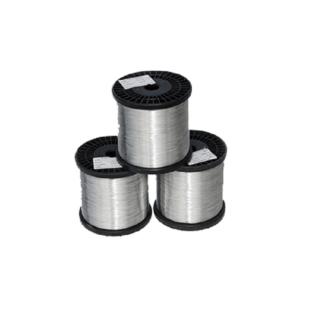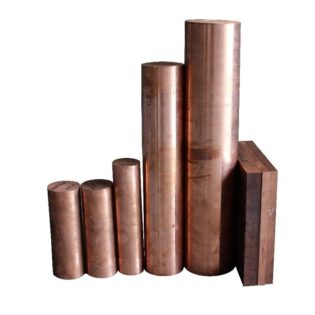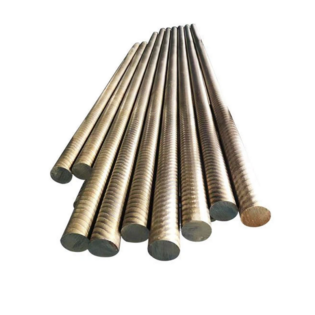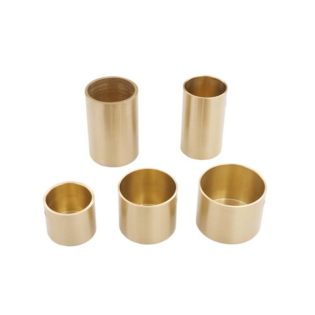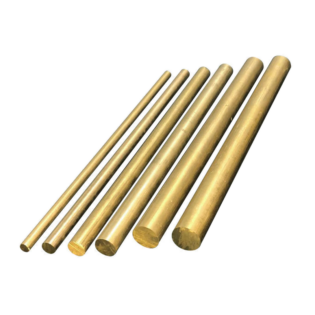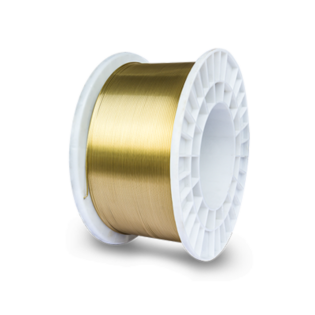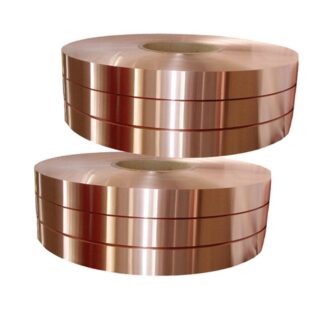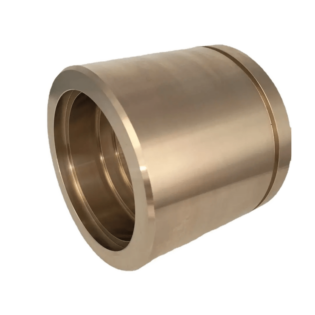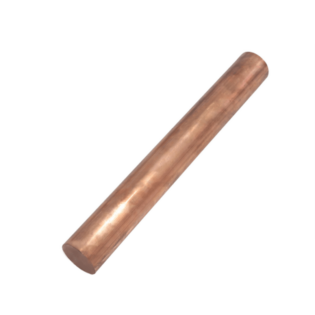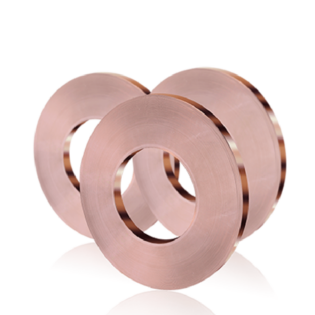DESCRIZIONE DEL PRODOTTO C31400:
Bronzo commerciale al piombo
SOLIDI: da 3/8″ a 2″ D.E.
ESAGONALE: da 3/8″ a 2″ D.E.
LUNGHEZZE STANDARD: 144″
Usi tipici
BUILDERS HARDWARE: door knobs
ELECTRICAL: connectors for wire and cable, electrical plug-type connectors
FASTENERS: nuts, screws
INDUSTRIAL: pickling crates, pickling fixtures, pickling racks, screw machine parts
- In the field of machining, C31400 lead brass is a widely used material. It has good cutting performance and wear resistance, so it is widely used in manufacturing high-precision parts and tools. The following details the processing characteristics, application areas and how to process and optimize C31400 lead brass.
Processing characteristics of C31400 lead brass
C31400 lead brass is an alloy material composed of copper, lead, zinc and other elements. This material has low hardness and is easy to machine. In addition, C31400 lead brass has excellent cutting performance and can be processed at high speeds, thereby improving production efficiency.
Application fields of C31400 lead brass
Because C31400 lead brass has good processing characteristics and mechanical properties, it is widely used in manufacturing high-precision parts and tools. For example, it can be used to manufacture precision parts such as cutting tools for machine tools, measuring tools, instruments and clocks. In addition, C31400 lead brass is also widely used in the electrical field, such as manufacturing conductive components and terminals.
Processing method of C31400 lead brass
The processing methods of C31400 lead brass mainly include milling, turning and drilling. During processing, you need to pay attention to the following points:
1. Select the appropriate tool material and tool angle. Due to the excellent cutting performance of C31400 lead brass, carbide cutting tools or high-performance high-speed steel cutting tools can be used for processing. At the same time, the selection of tool angle also needs to be adjusted according to the actual situation.
2. Control cutting speed and feed amount. When processing C31400 lead brass, excessive cutting speed and feed rate will cause increased tool wear and affect processing quality and accuracy. Therefore, it is necessary to choose the appropriate cutting speed and feed rate according to the actual situation.
3. Use coolant. The use of coolant during machining can lower cutting temperatures, reduce tool wear and workpiece deformation.
Optimization measures for C31400 lead brass
In order to improve the processing efficiency and product quality of C31400 lead brass, the following optimization measures can be taken:
1. Perform heat treatment. The hardness and wear resistance of C31400 lead brass can be improved through heat treatment, thereby improving its cutting performance.
2. Use coating technology. Coating technology can form a layer of wear-resistant material on the surface of the tool to improve the life and cutting efficiency of the tool.
3. Use intelligent processing technology. By using intelligent processing technology, the processing process can be controlled and optimized automatically to improve production efficiency and product quality.
Specifica simile o equivalente
| CDA | ASMA | SAE | AMS | Federale | Militare | Altro |
|---|---|---|---|---|---|---|
| C31400 | B140 B140M | MIL-V-18436 |
Composizione chimica
| Cu% | Pb% | Zn% | Fe% | In% | |||||||
|---|---|---|---|---|---|---|---|---|---|---|---|
Composizione chimica secondo ASTM B140/B140M-12(2017) Nota: Cu + somma degli elementi nominati, 99,6% min. I singoli valori rappresentano i massimi. | |||||||||||
| 87,50- 90,50 | 13:30- 2,50 | REM. | 0.10 | 0.70 | |||||||
lavorabilità
| Lega di rame N. UNS | Valutazione di lavorabilità | Densità (libbre/pollici3 a 20 °C) |
|---|---|---|
| C31400 | 80 | 0.319 |
Proprietà meccaniche
C31400
H02 Mezzo duro
GAMMA DIMENSIONI: DIAMETRO 1/2″ E INFERIORE
| Resistenza alla trazione, min | Carico di snervamento, allo 0,5% di estensione sotto carico, min | Allungamento, in 2 pollici o 50 mm min | Durezza Rockwell “B”. | la lega ha il doppio della sua resistenza alla compressione | ||
|---|---|---|---|---|---|---|
| ksi | MPa | ksi | MPa | % | tipico HRB | |
| 50 | 345 | 30 | 205 | 7 | 61 | |
GAMMA DI DIMENSIONI: DA OLTRE 1/2″ DIAMETRO FINO A 1″ COMPRESO
| Resistenza alla trazione, min | Carico di snervamento, allo 0,5% di estensione sotto carico, min | Allungamento, in 2 pollici o 50 mm min | Durezza Rockwell “B”. | la lega ha il doppio della sua resistenza alla compressione | ||
|---|---|---|---|---|---|---|
| ksi | MPa | ksi | MPa | % | tipico HRB | |
| 45 | 310 | 27 | 185 | 10 | 61 | |
GAMMA DIMENSIONALI: DIAMETRO OLTRE 1″
| Resistenza alla trazione, min | Carico di snervamento, allo 0,5% di estensione sotto carico, min | Allungamento, in 2 pollici o 50 mm min | Durezza Rockwell “B”. | la lega ha il doppio della sua resistenza alla compressione | ||
|---|---|---|---|---|---|---|
| ksi | MPa | ksi | MPa | % | tipico HRB | |
| 40 | 275 | 25 | 170 | 12 | 58 | |
C31400
H04 Difficile
GAMMA DI DIMENSIONI: DIAMETRO 2″ E INFERIORE
| Resistenza alla trazione, min | Carico di snervamento, allo 0,5% di estensione sotto carico, min | Allungamento, in 2 pollici o 50 mm min | Durezza Rockwell “B”. | la lega ha il doppio della sua resistenza alla compressione | ||
|---|---|---|---|---|---|---|
| ksi | MPa | ksi | MPa | % | tipico HRB | |
| 53 | 365 | 40 | 275 | 6 | 65 | |
Proprietà fisiche
Proprietà fisiche fornite da CDA | |||||||||||
| Consuetudine statunitense | Metrica | ||||||||||
|---|---|---|---|---|---|---|---|---|---|---|---|
| Punto di fusione – Liquido | 1900 °F | 1038°C | |||||||||
| Punto di fusione – Solidus | 1850 °F | 1010°C | |||||||||
| Densità | 0.319 lb/in3 a 68 °F | 8.83 gm/cm3 a 20 °C | |||||||||
| Peso specifico | 8.83 | 8.83 | |||||||||
| Conduttività elettrica | 42% IACS at 68 °F | 0.246 MegaSiemens/cm at 20 °C | |||||||||
| Conduttività termica | 104 Btu/sq ft/ft hr/°F at 68 °F | 180 W/m at 20 °C | |||||||||
| Coefficiente di dilatazione termica 68-572 | 10.2 ·10-6 per °F (68-572 °F) | 17.6 ·10-6 per °C (20-300 °C) | |||||||||
| Capacità termica specifica | 00,09 Btu/lb/°F a 68 °F | 377,1 J/kg a 20 °C | |||||||||
| Modulo di elasticità in tensione | 17000 ksi | 117212MPa | |||||||||
| Modulo di rigidità | 6400 ksi | 44127MPa | |||||||||
Proprietà di fabbricazione
Proprietà di fabbricazione fornite da CDA | |||||||||||
| Tecnica | adeguatezza | ||||||||||
|---|---|---|---|---|---|---|---|---|---|---|---|
| saldatura | Eccellente | ||||||||||
| brasatura | Bene | ||||||||||
| Saldatura ossiacetilenica | Non consigliato | ||||||||||
| Saldatura ad arco con gas schermato | Non consigliato | ||||||||||
| Saldatura ad arco in metallo rivestito | Non consigliato | ||||||||||
| Saldatura a punti | Non consigliato | ||||||||||
| Saldatura continua | Non consigliato | ||||||||||
| Saldatura di testa | Equo | ||||||||||
| Capacità di lavorare a freddo | Bene | ||||||||||
| Capacità di essere formati a caldo | Povero | ||||||||||
| Valutazione di lavorabilità | 80 | ||||||||||
Proprietà termali
Proprietà termiche fornite da CDA *La temperatura è misurata in Fahrenheit. | |||||||||||
| Trattamento | Minimo* | Massimo* | |||||||||
|---|---|---|---|---|---|---|---|---|---|---|---|
| Ricottura | 800 | 1200 | |||||||||
